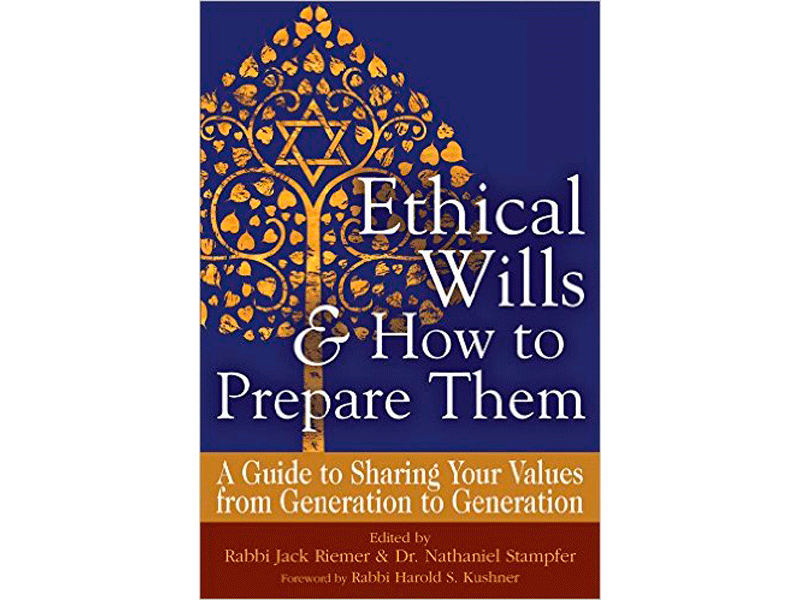When the Yiddish writer Sholom Aleichem died in 1916, his family discovered that he had created more than comedy. The writer, whose real name was Solomon Rabinowitz, had also penned what is known as an ethical will, part of a long-standing Jewish tradition, but not a well known one.
An ethical will can be thought of as a personal letter of wishes, written most often from parents to children. Unlike legal wills, these letters are not legally binding. The writer Emil Greenberg characterized ethical wills as being more about precept than property. Ultimately, ethical wills are not about material assets but about moral legacy.
Rabinowitz provided his family with a choice: they could recite the memorial prayer for the dead, the Kaddish, or they could gather each year on the anniversary of his death and read some of his most “merry” stories in a language understood by the listeners. His legacy would be illuminated in the laughter of his descendants. His family has subsequently organized a reading each year since his death, reading these comical stories for family and friends in English and Yiddish.
Rabbi Jack Riemer and Prof. Nathaniel Stampfer, co-authors of So That Your Values Live On: Ethical Wills and How to Prepare Them (Jewish Lights Publishing, 2010), collected examples of ethical wills – from traditional rabbinic wills to wills from the Holocaust, as well as wills from the State of Israel and contemporary examples. The ethical wills of public figures, including Theodor Herzl, Hannah Senesh and Edmond James de Rothschild, as well as those of ordinary folks, are gathered in the book.
To be clear, writing an ethical will is not necessarily an exercise for the elderly. Eldad Pan wrote a letter to his mother before he was killed in Israel’s War of Independence in 1948. He was 20 years old. Other people write ethical wills when faced with life-changing events, ranging from the birth of a child, to diagnosis of a terminal illness, a coming war, a move to another country and many other circumstances.
To put the tradition in a wider context, the ethical will repertoire includes letters, single author books, such as Sharon Strassfeld’s Everything I Know: Basic Life Rules from a Jewish Mother (New York: Scribner, 1998), as well as documentary films such as Hiding and Seeking: Faith and Tolerance After the Holocaust (2004).
Sometimes the trajectory of time is reversed, as in Katya Krausova and Yuri Dojc’s documentary Last Folio, a film by about vanished Jewish life in Slovakia inspired by parents who are no longer alive but whose presence is palpable.
Some thinkers find precedent for the tradition of ethical wills in the biblical stories of Jacob’s blessings (Genesis, 49) or Moses’ address to the Israelites (Deuteronomy, 4), to name but two examples.
What is missing from the published collections of ethical wills I have read are Canadian voices.
When Riemer and Stampfer searched for material for their collection of ethical wills, they posted a query in the New York Times book section. I am issuing an invitation to Canadian Jews from coast to coast as part of my sleuthing to find the voices of Canadians we have not yet heard from. Ethical wills constitute a part of the inner lives of Jews in modernity. Canada is part of that tradition, but is not yet publicly represented in much of the literature. It is my hope to change that with future research.
These letters may be secular or religious, serious or funny, long or short. While a letter on paper is the most common format, an ethical will may also be an audio, a video or a multimedia file. If you have an ethical will in your family, I would be grateful to obtain a copy for future research. I hope to be able to ultimately edit a collection in the form of a book. Inquiries can be sent to [email protected].
Lesley Simpson is a PhD student in Jewish studies at York University in Toronto
